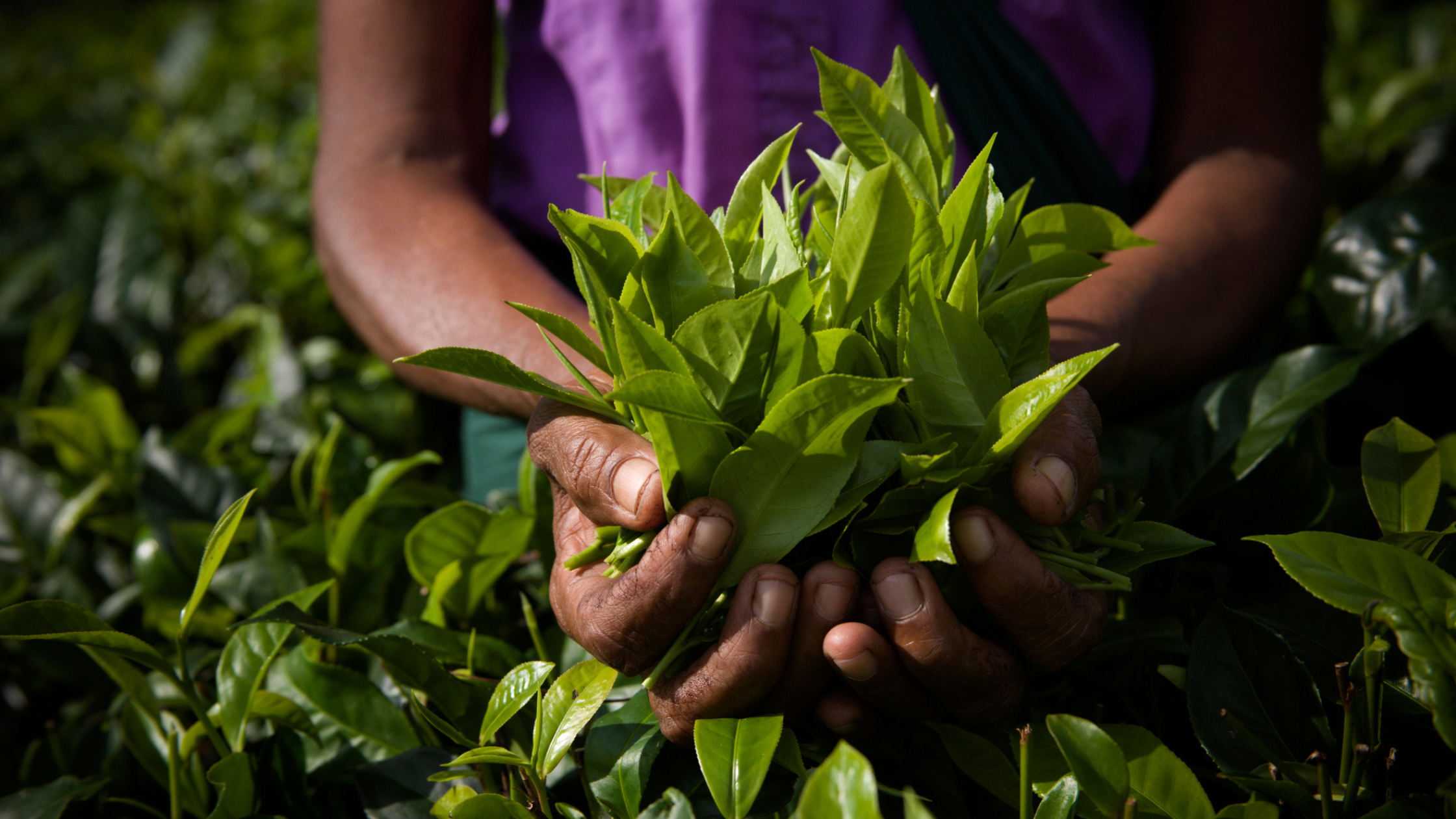
Parents are constantly looking for ways to keep their children healthy, and gut health plays a critical role in overall wellness. A balanced gut microbiome not only supports digestion but also contributes to a strong immune system, which is especially important for growing children. Synbiotics are combinations of probiotics (beneficial gut bacteria) and prebiotics (non-digestible fibers that support their growth) working together synergistically in the digestive tract.1 In fact, about 70% of the immune system resides in the gut, making digestive health foundational for protection against common imbalances and illnesses.2
When it comes to improving gut health, probiotics have emerged as a key tool. But not all probiotics are created equal, and finding the right one for your child can be a challenge in today’s marketplace. That’s where Bacillus subtilis DE111®, a clinically tested probiotic strain, comes in. This strain has been shown to survive the digestive process and promote a balanced microbiome, which can benefit both digestion and immunity in kids.3 For parents searching for the best probiotic gummies to improve their kids’ gut health and immune support, naturally sweetened probiotic supplements with DE111® are a top choice.
Why Gut Health and Immune Support Are Essential for Kids
A child’s gut health is about more than just avoiding occasional tummy troubles. A healthy gut microbiome can improve digestion, regulate bowel movements, and help the body absorb nutrients more efficiently. For kids, this is essential to ensure they are metabolizing and assimilating the vitamins and minerals they need to grow strong and healthy.
Beyond digestion, gut health is linked to a well-functioning immune system. Kids are exposed to countless germs at school, on the playground, and during playdates, so having a robust gut microbiome can give them the immune support they need to stay well. Plus, emerging research suggests that gut health can even impact cognitive function and mood, further underscoring its importance for overall wellness.4 Allergen-free probiotic gummies for kids offer a natural, clean-label option for supporting their digestive and immune health.
How DE111® Bacillus subtilis Boosts Kids’ Digestive and Immune Health
When selecting a probiotic for children, parents want one that is not only effective but also safe and backed by research. Bacillus subtilis DE111® meets these standards. Interestingly, Bacillus subtilis is the same beneficial strain used in natto, a traditional Japanese fermented soybean dish known for its rich probiotic content.5 DE111® was developed from this time-honored strain and offers the same digestive benefits in supplement form.
As a spore-forming probiotic, Bacillus subtilis DE111® has a unique ability to survive the acidic environment of the stomach, reaching the intestines intact, where it can provide the most benefit. Once in the gut, DE111® supports a healthy balance of beneficial bacteria. This balance is key to promoting regular digestion and easing common digestive issues such as bloating or irregular bowel movements. Additionally, DE111® plays a role in supporting immune health by promoting the growth of good bacteria that help the body’s natural defenses.3
How DE111® Works
Here are some of the keyways Bacillus subtilis DE111® can support your child’s health:
- Surviving Digestion: Unlike many probiotic strains, DE111® can survive stomach acid and bile, allowing it to reach the intestines and become active. This ensures your child receives the full benefits of the probiotic.3
- Supporting Immune Health: By promoting the growth of beneficial gut bacteria, DE111® helps maintain a healthy immune response. This is particularly important for children as their immune systems develop and face regular exposure to germs.3
- Balancing the Microbiome: DE111® contributes to a balanced gut microbiome, helping to regulate digestion, reduce occasional digestive discomfort, and support overall digestive health.3
Prebiotic-Powered Probiotics: How Prebiotics and DE111® Work Together
Synbiotics combine probiotics like DE111® with prebiotics, working synergistically to promote a healthy gut microbiome. Research suggests that naturally occurring prebiotics, such as those found in polyphenol-rich fruits and citrus pectin, are ideal for promoting the growth of beneficial bacteria, supporting gut health.6,7
Polyphenols: These compounds are found in fruits like apples, berries, and grapes and are known for their ability to reach the colon.where they serve as nourishment for beneficial bacteria. Polyphenols help promote a favorable environment in the gut, allowing probiotics like DE111® to thrive.6
Citrus Pectin: This soluble fiber is another excellent source of prebiotics. Pectin promotes the growth of important gut bacteria, such as Lactobacillus and Bifidobacterium, and supports regular digestion and nutrient absorption.7
Parents and pediatric practitioners should look for 100% fruit-juice sweetened children's supplements to provide this nutritive, natural source of prebiotics to boost gut and immune health.
Why Clean, Natural Ingredients Matter
Health-conscious parents are careful about what they give their children, especially when it comes to supplements. Artificial colors, flavors, and preservatives are often found in many children’s products, but they absolutely DO NOT belong in supplements designed to support wellness. Choosing trusted brands committed to Premier Quality supplements with natural ingredients is key for parents who prioritize clean, safe products for their kids.
A clean label product formulated with whole fruit for natural sweetness should always be natural ingredients, free from common allergens like soy and dairy to ensure that kids get the benefits of an allergen-free probiotic supplement without unnecessary additives, such as added sugars and palm oil. Supplements sweetened naturally with fruit purees are a great way to support your child’s gut and immune health without compromising quality or dietary standards.
Making Gut Health Fun for Kids
One of the challenges with supplements for children is compliance—getting kids to take them regularly can be tough. That’s why gummy supplements, especially those that are naturally sweetened and taste great, can be a game-changer. Gummies make it convenient and easy for children to get their daily dose of probiotics without a fuss, ensuring they receive the benefits consistently.
Naturally sweetened gummies that explicitly use fruit puree concentrates offer a clean, healthy way to support your child’s digestive and immune systems. They’re a fun, convenient option for busy parents who want to ensure their children stick to a daily wellness routine. With no artificial flavors, colors, or preservatives, they provide a guilt-free solution for supporting kid’s gut health.
The Long-Term Benefits of a Healthy Gut
Investing in your child’s gut health now can pay dividends in the future. A healthy gut microbiome supports overall wellness, including digestion, immune function, and even brain health.8 By integrating a high-quality kid’s probiotic, like DE111® Bacillus subtilis, into their daily routine, parents can help lay the foundation for lifelong wellness by supporting long-term gut and immune health.
The synergy between probiotics like DE111® and natural prebiotics from fruits and citrus pectin creates a powerful formula for gut health. Kids probiotics like DE111® can help promote a healthy gut microbiome, supporting regular digestion, and immune system resilience —all essential components for growing, active children.
Understanding the science behind probiotics and prebiotics can empower parents to make informed choices about their children’s health. With clinically tested probiotics like DE111®, parents can feel confident in the safety and effectiveness of their choice, knowing they are supporting their child’s health naturally and effectively. When choosing the best probiotic for kids, make sure it contains absolutely NO artificial ingredients. Experience the clean label difference that PRL products offer, ensuring a Premier Quality option for your child's health.
‡ The products and claims made about specific products on or through this Site have not been evaluated by the United States Food and Drug Administration and are not approved to diagnose, treat, cure, or prevent disease.
‡ This Site is not intended to provide diagnosis, treatment, or medical advice. Products, services, information, and other content provided on this Site, including information that may be provided directly or by linking to third-party websites are provided for informational purposes only. Please consult accredited healthcare professional organizations, evidence-based herbal monographs, and published clinical research regarding any medical or health-related diagnosis or treatment options.
_________________________________________
References
- Markowiak P, Śliżewska K. Effects of Probiotics, Prebiotics, and Synbiotics on Human Health. Nutrients. 2017;9(9):1021. Published 2017 Sep 15. doi:10.3390/nu9091021. Available at: https://pubmed.ncbi.nlm.nih.gov/28914794/
- Wiertsema SP, van Bergenhenegouwen J, Garssen J, Knippels LMJ. The Interplay between the Gut Microbiome and the Immune System throughout Life and the Role of Nutrition in Optimizing Treatment Strategies. Nutrients. 2021;13(3):886. Published 2021 Mar 9. doi:10.3390/nu13030886. Available at: https://pubmed.ncbi.nlm.nih.gov/33803407/
- Paytuví-Gallart A, Sanseverino W, Winger AM. Daily intake of probiotic strain Bacillus subtilis DE111 supports a healthy microbiome in children attending day-care. Benef Microbes. 2020;11(7):611-620. doi:10.3920/BM2020.0022. Available at: https://pubmed.ncbi.nlm.nih.gov/33161736/
- Tran N, Zhebrak M, Yacoub C, et al. “The gut-brain relationship: Investigating the effect of multispecies probiotics on anxiety in a randomized placebo-controlled trial of healthy young adults.” Journal of Affective Disorders. 2019;252:271-277. doi:10.1016/j.jad.2019.04.043. https://pubmed.ncbi.nlm.nih.gov/30991255/
- Li D, Hou L, Hu M, et al. Recent Advances in Nattokinase-Enriched Fermented Soybean Foods: A Review. Foods. 2022;11(13):1867. Published 2022 Jun 24. doi:10.3390/foods11131867. Available at: https://pubmed.ncbi.nlm.nih.gov/35804683/
- Plamada D, Vodnar DC. Polyphenols-Gut Microbiota Interrelationship: A Transition to a New Generation of Prebiotics. Nutrients. 2021;14(1):137. Published 2021 Dec 28. doi:10.3390/nu14010137. Available at: https://pubmed.ncbi.nlm.nih.gov/35011012/
- Quigley EMM. Prebiotics and Probiotics in Digestive Health. Clin Gastroenterol Hepatol. 2019;17(2):333-344. doi:10.1016/j.cgh.2018.09.028. Available at: https://pubmed.ncbi.nlm.nih.gov/30267869/
- Ronan V, Yeasin R, Claud EC. Childhood Development and the Microbiome-The Intestinal Microbiota in Maintenance of Health and Development During Childhood Development. Gastroenterology. 2021;160(2):495-506. doi:10.1053/j.gastro.2020.08.065. Available at: https://www.ncbi.nlm.nih.gov/pmc/articles/PMC8714606/
Jenny Perez is an herbal educator, researcher, and writer who has been immersed in nutrition and botanical medicine for more than twenty years. She has created curriculum, content, and educational materials for Premier Research Labs, Quantum Nutrition Labs, the American Botanical Council, and Bastyr University’s Botanical Medicine Department, where she was Adjunct Faculty, Herb Garden Manager, and Director of the Holistic Landscape Design certificate program.









